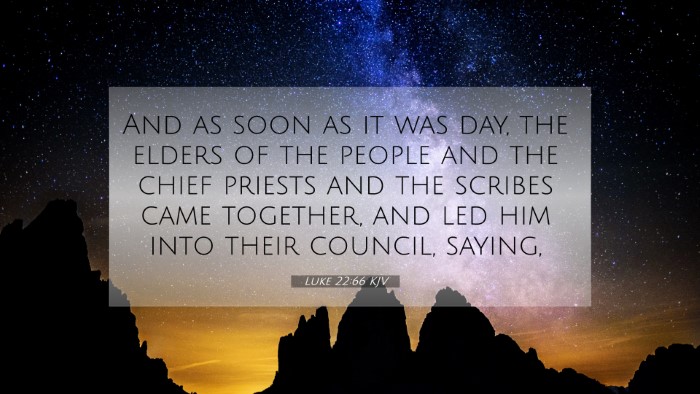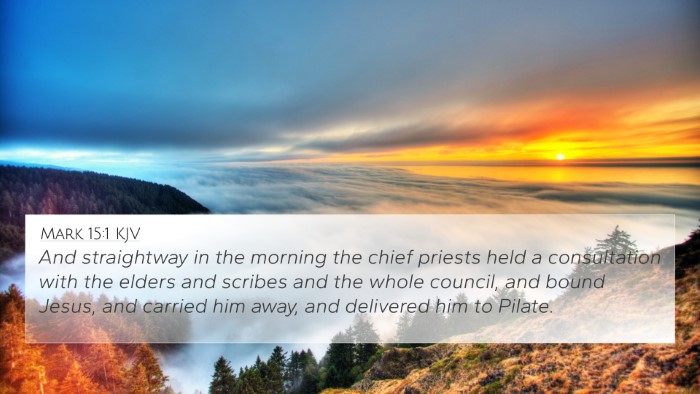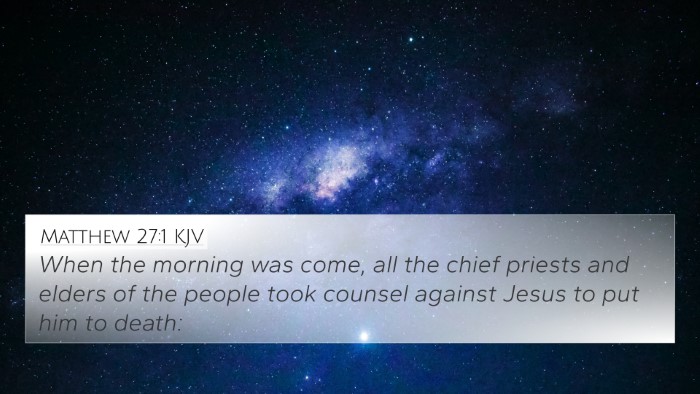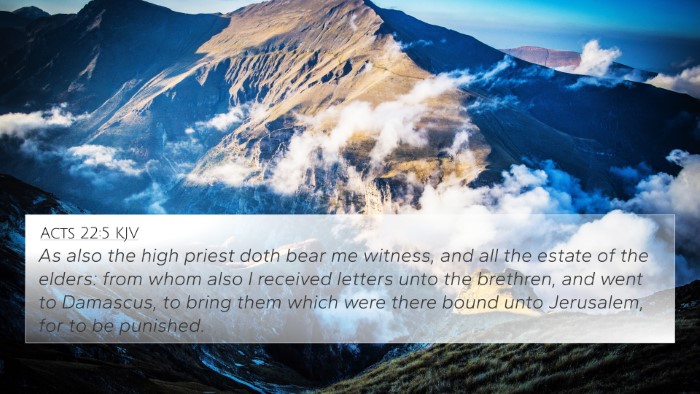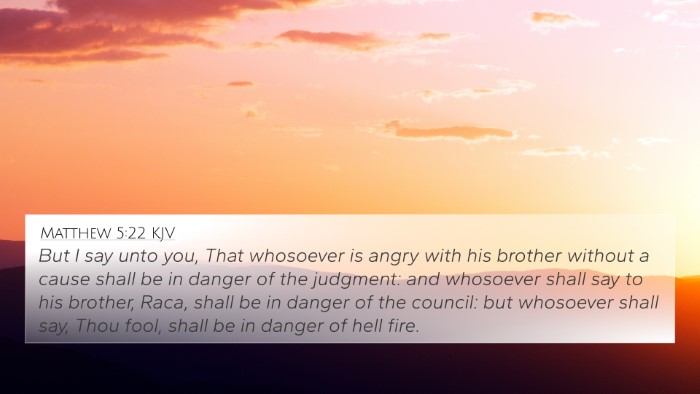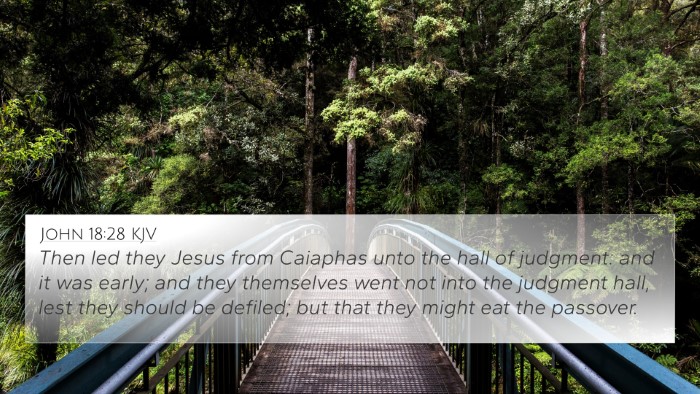Understanding Luke 22:66
Verse: "As soon as it was day, the elders of the people and the chief priests and scribes came together, and led Him into their council," (Luke 22:66, NKJV)
Overview
In Luke 22:66, the narrative presents a critical moment in the trial of Jesus. This scene occurs on the morning following His arrest when the religious leaders convene to assess the accusations against Him. Understanding the circumstances and implications of this verse requires exploring its context and significance within the broader themes of the Gospels.
Contextual Significance
This verse marks the transition into the formal proceedings against Jesus, signifying a culmination of previous conflicts with religious authorities. As Matthew Henry notes in his commentary, this gathering represents the culmination of months, if not years, of plotting against Jesus.
Albert Barnes emphasizes the importance of this assembly, which holds significant authority. The council comprising elders, chief priests, and scribes signifies a united front against Jesus, reflecting the seriousness of the charges they intend to bring forth.
Adam Clarke adds that this meeting was not just a judicial inquiry but also a gathering fueled by jealousy and insincerity, indicating the profound spiritual implications of their actions.
Thematic Connections
- Plot Against the Innocent: The trial signifies the unjust treatment of Jesus, paralleling Old Testament themes of the righteous suffering at the hands of the wicked (Psalm 37:32-33).
- Authority of the Religious Leaders: Their authority's misuse serves as a warning against the corruption of leadership (Matthew 23:2-4).
- Fulfillment of Prophecy: The assembly is part of the fulfillment of earlier prophetic statements regarding the Messiah's suffering (Isaiah 53:3).
Cross-References to Luke 22:66
- Matthew 26:59-66: Details of the trial before Caiaphas.
- Mark 14:55-64: Insights into accusations and Jesus' responses during the trial.
- John 18:12-14: Preliminary hearings before Annas and Caiaphas.
- Isaiah 53:7: A prophetic foretelling of the silent suffering of the Messiah.
- Acts 4:27-28: Apostolic reflection on the conspired actions against Jesus.
- Psalms 35:11: Righteous sufferings due to false accusations, echoing the treatment of Jesus.
- Luke 3:19-20: Contextual background regarding the call for John the Baptist's imprisonment.
Application and Reflection
This passage urges believers to reflect on the nature of justice and the importance of truthful witness. The gathering against Jesus serves as a stark reminder of how power can be misused in the pursuit of personal agendas rather than righteousness.
Moreover, it connects to the broader scriptural narrative about the suffering servant, aligning New Testament events with Old Testament prophecy. For Christians today, it encourages contemplation on what it means to stand firm in faith amidst opposition.
Tools for Cross-Referencing
For further exploration of connections between Biblical texts, users can utilize:
- Bible concordance to find related verses.
- Cross-reference Bible study guides for thematic studies.
- Bible reference resources that offer comprehensive materials for deeper understanding.
Conclusion
Luke 22:66 functions as a critical waypoint in the narrative of Jesus' passion. By examining this verse in light of its context, thematic significance, and cross-references, readers can acquire a richer understanding of the circumstances leading to the crucifixion and the profound lessons stemming from these events.


